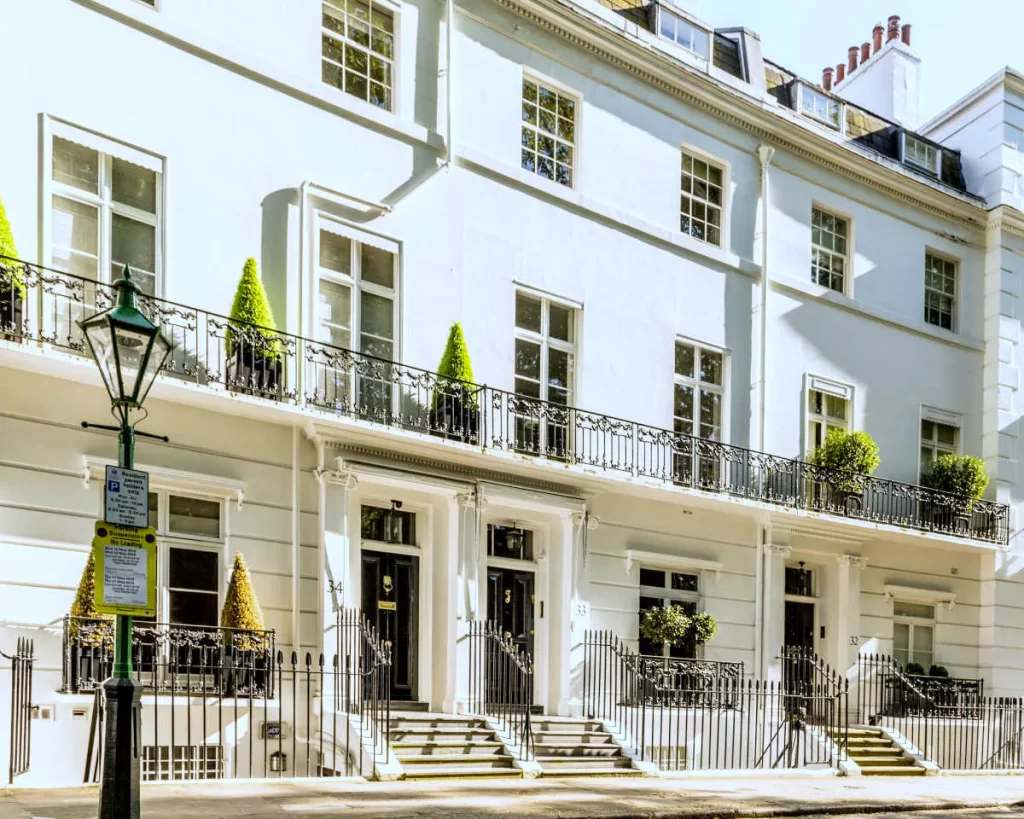Building Surveys are sometimes referred to as ‘Structural Surveys’ by other surveyors because many of the Building surveyors are qualifying members of the Royal Institution of Chartered Surveyors and have been trained to a high standard to provide the full range of property advice to clients. The building survey is more suited to homes that are over 100 years old and homes that have been substantially rebuilt or altered because it covers all visible and accessible parts of the property inside and out. Your Building Survey will be much more detailed and therefore a little more expensive than the Homebuyer’s Reports
Whether you’re buying your first home or your 20th, there’s one step you can’t afford to skip: the survey! Typing in your new postcode isn’t quite enough… you need to know as much as possible about the condition of the property and any immediate repair and maintenance issues before you buy. How much will it cost to change the roof, for example? Is there a risk of subsidence? What are the local development plans? Are your next door neighbours planning to steal your garden? How much does the empty plot across the road earmarked for a public convenience reduce the value of the house you are planning to blow the kids inheritance on? These are all things you need to know!


Starting your journey on the property ladder in London? Whether you’re a buyer or investor, the RICS Level 3 Building Survey is the most in-depth option available to you in your potential new London home or investment, providing a premium service with unprecedented insight. Buying a property in London can be a challenge for anyone, not just a first time buyer. So for those who need guidance to get the most out of a building survey, highly experienced RICS Chartered Surveyors with wide knowledge of London, the surrounding area, the centre and all suburban areas and what to keep an eye out for in each area. A Building Survey will allow you to have a full picture of the property you are buying with details on the condition of the home and any repairs that may be required in the near future.
The team of Chartered Surveyors are the best RICS chartered Building Surveyors in London and surrounding areas. So if you are looking for a Building Survey in London, then we would be delighted to help out!
It is very important for you to make sure that you get the right kind of survey for your London property. For instance you would not need to have a thatched roof survey for a flat in West London, nor would you want to have a damp and timber survey when you are purchasing a new build flat in central London.
The type of survey you require will be determined by a variety of factors, however, a few key variables include the age, location and condition of the London property in question. Contacting an independent chartered surveyor who has experience in the property market in London is advisable, they can help guide you to finding the right survey for you and your specific needs. This will offer you peace of mind and allow you to make your on how to proceed with the negotiation process of a potential new home.
The Royal Institution of Chartered Surveyors (RICS) outlines guidance on building surveys. The RICS guidance categorises levels of surveys into levels. RICS building survey reports are categorised into three levels:
A condition report is the basic entry level survey product, providing an overview of the properties condition, and is especially suited to relatively modern and conventional properties. Your RICS Surveyor may carry out this survey and check for the obvious, categorising possible issues as Red, Amber, Green.
The colour codings are to show how serious problems are. Red is urgent, amber is the potential for any further problems, and green is either the absence of any or it isn’t necessary to be reported. The Level 1 Condition Report also identifies many of the same issues contained in the Homebuyer’s report, however does not offer the in-depth analysis that the other more detailed surveys do. The RICS Level 1 Condition Report is cost-effective and ideal for Homebuyers or property owners looking for clear, picture of the condition of the property.
The level 2 Homebuyer Report is a more detailed survey that is suitable for any standard property. The RICS Level 2 Homebuyers Report is ordinarily completed by a qualified RICS surveyor and will inspect the structure of the property in more detail identifying any visible issues such as damp, subsidence or timber decay, combined with expert advice on necessary repairs, maintenance options and an indication of any potential issues or dangers.
This service also uses the RICS traffic light system to rate and advises on the condition of all elements of the structure. It will also typically include a market valuation and a reinstatement cost assessment for insurance purposes. The RICS Level 2 Homebuyers Report is best if you’re buying, selling or living in a conventional, newer build property and you need a more in-depth look at the property, as the minimum standard.
A detailed report on condition and any issues which need attention. This is the most comprehensive report available and should be used on all properties, including those where no issues are present but the occupant wishes to know more about the structure and how to maintain it. The report should be used when there are known issues with the property or the client is planning major renovation works, or where the property is very old, large or of complex construction. Many of the reports are conducted by a senior RICS surveyor.
The Level 3 Survey will provide an extensive inspection of the structure of the property, internally and externally, looking for any defects, potential problems and necessary repairs. Unlike the Level 1 survey and Level 2 survey, the Level 3 Building Survey is a bespoke, narrative-style report, which will provide specific advice and information on the suggested remedial actions. You also have the option for the add-on service of estimated costs for these repairs and more detailed information on the property’s construction and the materials used
The length of time a building survey takes depends on many factors including the type of property, the size and the complexity of issues. If you are interested in the approximate time a site inspection will take, it is usually around 2-3 hours however this will obviously depend on the size of the property. If the property is very large or there are specific concern areas that you want to be looked at, it may take longer than the stated times
If the survey comes back with a list of defects the buyer still has the opportunity to go ahead with the purchase, negotiate a lower price with the seller or the seller can carry out the necessary repairs.
If any major faults are discovered during the survey, an important course of action to take is to discuss this with your surveyor or solicitor as they can advise on what to do about the problem, any structural defects and what it may mean. Any potential costs to fix it and how much it could affect the value of the property. All of this can be used to re-negotiate the price of the property or change the decision on buying the property at all.
The RICS Level 3 Building Survey is the survey of choice for most property purchasers and the survey most trusted by surveyors as, although it is the most expensive of the three types of surveys, it contains a massive amount of detail about the property and allows the potential purchaser to make an informed decision about the property and presumably prevent unforeseen major expenditure occurring after purchase.
These detailed reports help you save money in the long run by highlighting even the most minor of issues that may get worse and be very expensive to repair, should they not be fixed. A comprehensive insight into a property’s condition. You may want to reconsider taking out a £1m mortgage to buy a home that could turn out to be a very bad investment. Not all properties have to be walked away from should the survey come back as ‘failing’ or ‘requires work’, but your Building Survey will equate to EXACTLY how much the house is really worth, based on the work that needs doing. In many cases, nearly all the work is knocked off the asking price.
Costs can vary, depending on the type of survey you require and how large the property is. At the present time, as a guide, level 3 surveys (full structural building surveys) usually start at around £700 and level 2 surveys (homebuyers reports) at around £600.
A mortgage valuation is not a building survey
Most people think that getting a mortgage valuation will give them some insight into the condition of a property. However, this type of brief report is prepared solely for the purpose of mortgages; they are designed to ensure that the mortgage-lenders money is safe and well spent.
A mortgage valuation is not to be confused with a level 3 survey. For example, mortgage valuations do not give you early warning of any major remedial work.
The Full Building Survey is the most comprehensive of all the reports our panel of surveyors offer including full written report, photos and quotes for any required works. Your full building surveyor uses the most advanced equipment and this may include pole cams or camera poles to see every nook and cranny of the accessible areas of the building to produce the most detailed report, including:
Services (drainage, gas, electricity, water, heating, etc.)
When you receive the survey report, schedule a follow-up call with your surveyor within a week. This allows you to go through the report, raise any particular concerns you have, ask for explanations of any findings you may not understand, and receive from the surveyor any additional insight on the next steps you should take.
Extending your lease is essential as the value of your property may decrease when the lease term gets shorter, making it harder to sell or remortgage. Additionally, a longer lease term provides more security and flexibility for the property owner.
You are typically eligible for a lease extension if you have owned the property for at least two years and have a lease term of at least 21 years remaining.
During the lease extension process, you are entitled to professional advice and support, fair negotiations, and transparent communication with the freeholder or their representatives.
The cost of a lease extension depends on several factors, including the property’s value, the remaining lease term, ground rent, and the extension’s length. Additionally, legal and valuation fees will add to the overall cost.
To get started with a lease extension, consult a solicitor or leasehold expert, obtain a lease extension valuation, and serve a Section 42 notice on the freeholder outlining your proposed terms.
The procedure for extending a lease involves the following:
a) Consulting a leasehold expert or solicitor
b) Obtaining a lease extension valuation
c) Serving a Section 42 notice on the freeholder
d) Negotiating the terms and cost of the lease extension
e) Finalise and register the new lease agreement with the Land Registry.
A lease extension can be refused if you do not meet the eligibility criteria, serve an invalid Section 42 notice, or disagree on terms with the freeholder within the statutory negotiation period.





